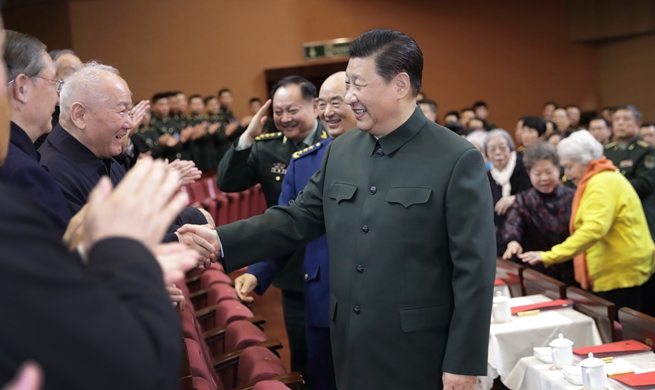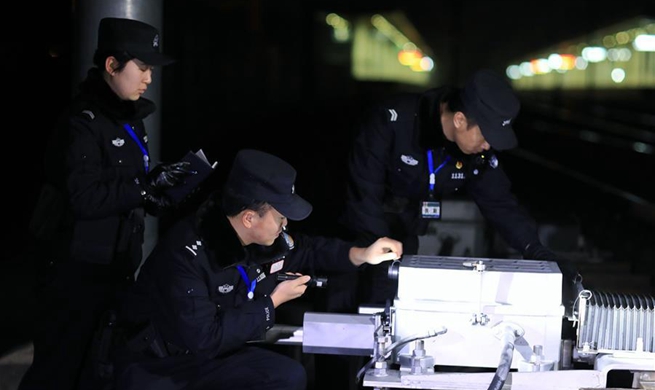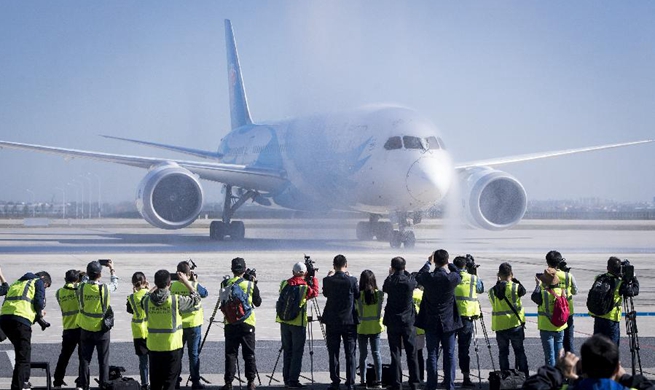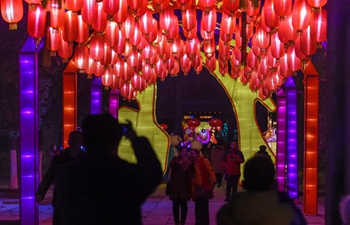YINCHUAN, Jan. 23 (Xinhua) -- Liu Pushun's enthusiasm for the sky started when he was a little boy counting the stars above in his courtyard. Little did he know that his passion would inspire a large-scale business years later.
Liu, 38, is a "star-gazing" tour guide in northwest China's Ningxia Hui Autonomous Region. He currently runs a company that brings tourists to areas where they can view constellations in the night sky throughout the year in Ningxia, and he is reaping huge success.
"The average cost for each person to participate in the star-gazing tour is about 10,000 yuan (1,469 U.S. dollars)," he said. "It is not cheap, but my customers all enjoy it."
Behind the enthusiasm for the "astronomy tours" are the rising tourism and related industries in China.
Thanks to improving incomes and better transport services, more Chinese people now travel during holidays, making tourism an increasingly significant driver of the economy.
Liu has taken thousands of tourists to see stars over the years. A star-gazing tour usually includes eating good food, seeing beautiful landscapes and, most importantly, viewing the stars with Liu's professional guidance and taking photos of the stars in areas more than 170 km away from the city center of Yinchuan, the regional capital.
"To look at the stars clearly, we need days with good weather and when the moon cannot be seen," he said.
Liu grew up in Yinchuan. With high altitude, thin clouds and a high frequency of clear days, the region is perfect for star-gazing.
"When I was younger, I lived in the suburbs of Yinchuan, and whenever I looked to the sky, I could see the bright stars and even the Milky Way," Liu recalled. "It was so mysterious that I was mesmerized."
Liu began to accumulate astronomy knowledge from a young age. In 2011, Liu bought his first astronomical telescope and started taking photos of the constellations in the sky. He also worked as an instructor at a local science museum, where he found a lack of astronomical knowledge among the public.
"China is where astronomy developed the earliest, but many people cannot even find the North Star," Liu said.
In 2016, Liu quit his job and ventured into a star-gazing tour business by cooperating with a company from Shanghai. Liu was in charge of designing the tour itineraries and taking the tourists to see the stars.
"The response was overwhelming," Liu said. "In little more than two years, I took more than 1,000 tourists to experience star-gazing. Each tour lasted five days and four nights."
Liu became quite confident in the emerging sector and later launched his own star-gazing project. Under the stars, Liu would explain knowledge about the constellations. Each tourist would have time to share their own stories about the stars.
"Some people laugh and some cry when recalling their stories," Liu said. "These are not just average tours; they are a chance for urbanites to release pressure from their hectic lives."
Liu said that when he started the business, he would take professional telescopes so that people could see the stars more clearly. Gradually, he realized that "the best equipment is the human eye."
"The telescopes might help people see the galaxies more visibly, but the naked eyes can help them reach their souls," he said.
Li Min, a tourist from the southern metropolis of Shenzhen, took her son on Liu's tour last year.
"It was not only my son's first time to look at the stars so clearly and professionally, but it was also my first time to do so," she said. "Mr. Liu taught us how to find different constellations with a telescope; he also taught us how to take professional pictures and even create our own sundials."
While tasting the sweetness of success in his business, Liu is also trying to disseminate astronomy knowledge. He is considering building a "science base," where observatories will be built.
"I hope that the public will have more opportunities to connect with astronomy," Liu said. "In my eyes, the sky and the stars are the most beautiful scenery in the world."

















